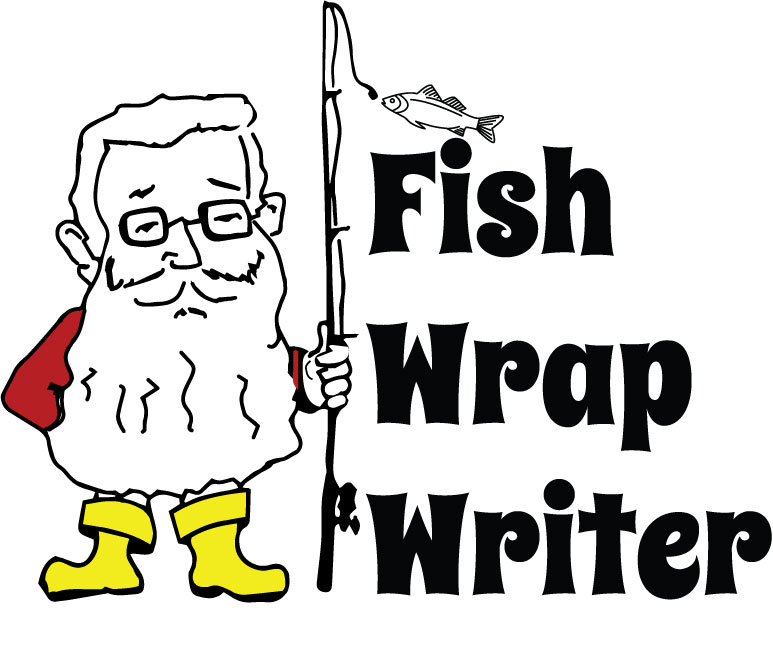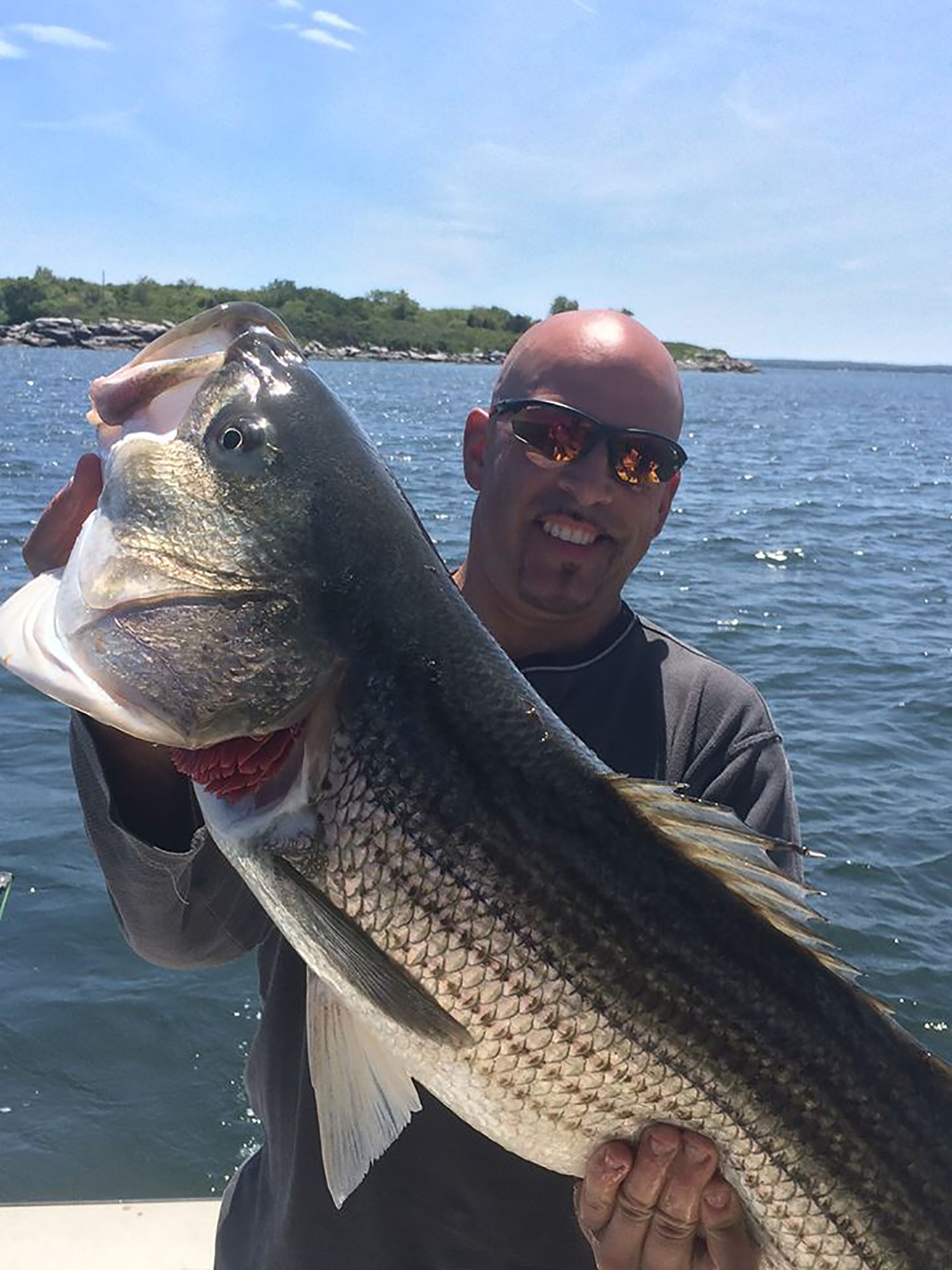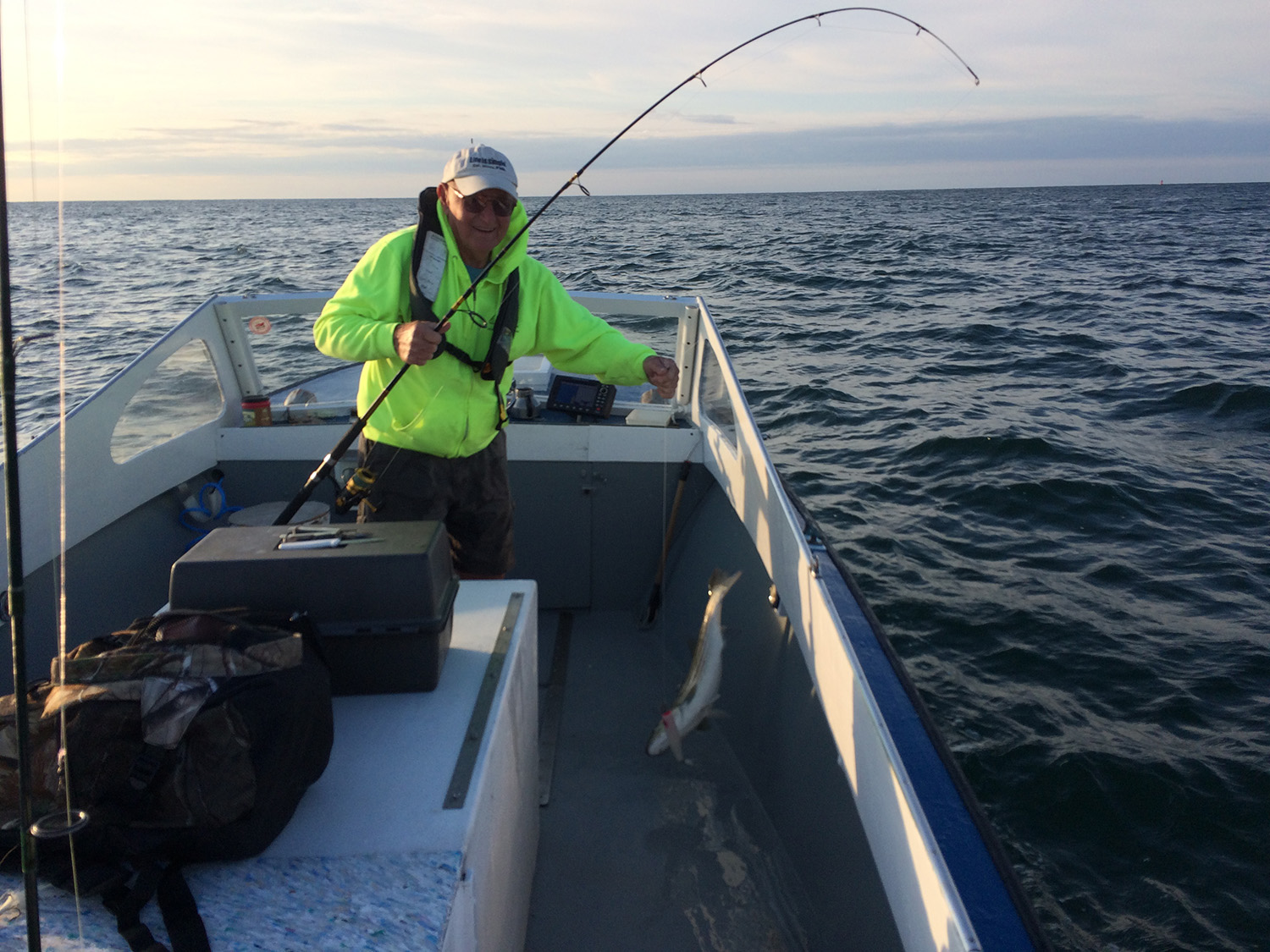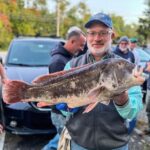RIDEM Law Enforcement gave a presentation to the July Rhode Island Saltwater Anglers meeting and after a slide show with some straight-eighties Kenny Loggins guitar, Lt. Joe Poccia walked members through the history, mission and daily demands of their Environmental Police officers. The Q&A session was pretty straightforward until Kevin Robishaw spoke up, with just enough pitch in his voice to show he was serious; courteous but serious. Where is the enforcement of the EEZ, he asked, where striped bass are being hauled away illegally from federal waters on a regular basis? Why are there no boats patrolling the boats taking big bass back to neighboring states? “I never saw you out there one time last year”, he said. That’s a fair question.
For some history, fishing for striped bass in the Exclusive Economic Zone, that sea zone prescribed by the United Nations Convention on the Law of the Sea, referring to the area three miles or greater from our state shoreline, is prohibited. Period. To be more specific, the National Marine Fisheries Service has cast into law that no person shall fish for, harvest, possess or retain any striped bass (Morone saxatilis) in the EEZ. There is a provision for travelling through the waters to the south and west of Block Island (and for Lord’s sake can we please stop calling it “block”) but that is an aside to this issue.
Kevin is a sharp guy; he’s the guy who has every right to ask the hard questions because he has walked the walk, not just complained about this or that. Lots of good fishermen can make it to Dougherty’s in Warwick for a pint but can’t drive twenty minutes south to URI for a meeting with the very people who can and will control their access to fish. Kevin has travelled the miles in support of our fisheries.
The answer to Kevin’s enforcement question really gets us nowhere and it is not the officer’s fault, they just do not have the manpower. It’s not an excuse, it’s the truth. According to Lt. Poccia, in 1989 they had 40 officers, in 1998 they were reduced to 37 and currently they have 27. Our pages of regulations have increased while the state’s ability to enforce them has decreased and we suffer for that. He mentioned that on several occasions, as they steamed toward the line, they were called to respond elsewhere and that’s the true cost of their demanding roles as not just game wardens but also as police officers. Throw in an exploding beach, a cocktail of flaming fishing boats, a few campgrounds packed with steaming people and their humid dispositions and you have a straight-out department of trained officers who just simply cannot be everywhere.
For our state legislators, protecting the rich resources this side of the EEZ line and prosecuting those who violate them should be a priority. Priorities can be tricky business in a state of legislators with exclusive license plates driving over crumbling bridges while quietly talking about helping fund a privately owned ballpark where hot dog vendors can earn minimum wage. It’s unfair to spend millions promoting our state to tourists while not protecting a resource many come here to experience. Edward Abbey gave us “Sentiment without action is the ruin of the soul”. He’s right. The Rhode Island Salt Water Anglers Association has had 18 successful years of Take-A-Kid Fishing Day; maybe someone could sponsor a Take-A-Legislator Fishing day.
To add some depth, charter boat captains took a hit with the new conservation change so now they legally travel to the edge of our state waters to put their scouts on a single nice bass while those other guys take full advantage of a help-yourself zone. In delivering our state budget, Governor Raimondo herself wrote “Rhode Island needs bold change”, so as regulations are adjusted to anticipate or react to changing oceans and biomasses, then appropriate supporting funding needs to be allocated for the men and women charged with enforcing them. Think of all the money we the people spent battling over tollbooths on the Sakonnet River Bridge; I’ll bet that would have paid for some overtime and boat fuel. What are we talking, 4 gallons an hour?
Poaching has been an issue for years. Is there a rainy day fund, a legal way to move some short-term funding? Is this even a large enough issue in the eyes of RIDEM? I ask that our government put off any discussions about giving any of our taxpayer money to some uber-successful baseball businessmen (the great songwriter Chris Smither wrote, “I’ve been down that road, it’s paved with good intentions…”) who short-sheeted The Bucket and now want us to carry their water and instead focus their attention on preserving our striped bass fishery. It was a long road to the one fish per day rule, whose intention was conservation of a fishery showing signs of trouble so if we allow anyone to cross that line and take whatever they wish, even one striped bass, then all the meetings and arguing and emailing and even column writing was for nothing and that’s not fair.







0 Comments